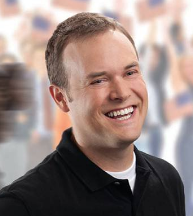Rethinking Science, Policy
The Illusion of Average: An Open Science Approach to Research
Improving Scientific Research in the Age of Personalization and Open Data
In a new program for the Fall 2016 New Tools series, we are hosting three seminars that explore the future of scientific research as it confronts enormous challenges and discovers promising new opportunities.
About the Seminar
September 23, 2016 8:30am—10:30am
Talk 2: When the Differences Matter: an Open Science Approach in an Age of Individualization
Public participation for science or advocacy has an inconsistent history of effectiveness. New tools for crowdsourcing and challenge platforms have unflattering track records, revealing the current limits of technologies to enable the centralization or decentralization of power and influence. Local expertise can be harnessed toward a new reality in which communities provide feedback on their own conditions. When challenges arise, publics equipped with new tools can legitimately participate by studying their circumstances, testing alternatives for improving their communities, and advocating for the actions that best reflect their current values. Further, these strategies can be tailored to local realities to increase the likelihood of successful adoption and implementation. There are many examples of how open innovation is changing conversations with participatory infrastructures:
- When data are open, more values are supported, and alternatives can be explored.
- Publics can collect and process data to focus attention on locally relevant problems.
- Publics are local experts who provide distributed context and situational awareness.
- Publics ask unique questions that can be locally tested with quantified self, agile science, and small data methods.
- Crowdsourcing can be a form of advocacy, as demonstrated in the water crisis in Flint, Michigan.
Taken together, these opportunities highlight the shifting role of non-scientists from receiving “answers” to, instead, shaping questions and supporting rigorous, contextualized research that can be fed back into a robust, curated knowledge base.
Talk 1: The Illusion of Average: Implications for Scientists
Talk 3: The Illusion of Average: Renewing Research Infrastructure
Location Information
ASU Washington Center
1834 Connecticut Ave NW
Washington, DC 20009
RSVP: [email protected]
Speakers
Past Series
-
October 03, 2024 3:30pm
Carbon Removal Social [Science]
Holly Buck, Sara Nawaz, Rory Jacobson, Marcela Mulholland, Amanda Borth
-
June 04, 2024 12:00pm
Hopeful Climate Futures through Speculative Storytelling: Decolonizing Global Climate Action
Chinelo Onwualu, Joey Eschrich
-
April 29, 2024 9:00am
Public Funding, Patents, and Technology Transfer: Learning from the Contrasting Oxford and Texas Models of COVID-19 Vaccine Production and Distribution
Ken Shadlen
-
March 21, 2024 9:00am
Inspirations from European Technology Assessments: Institutions, Practices and Key Debates
Anja Bauer
-
May 10, 2024 9:00am
Adapting Federal Programs to Evolving Public Values: Insights from the Department of Energy
Darshan Karwat, Matthias Galan
-
April 30, 2024 9:00am
ASU’s Milo Space Science Institute: Increasing the World’s Access to Space
Jim Bell
-
January 22, 2024 12:00pm
Reinventing Participatory Technology Assessment
Nicholas Weller, Amanda Borth, Emily Hostetler, Jared Owens, Arthur Daemmrich
-
November 17, 2023 9:00am
“Unacceptable Costs”: Managing for biological invasions and climate risks in the US Pacific Islands
Laura Brewington
-
October 30, 2023 9:00am
Patent Data & Publicly-Funded Research: Applications, Benefits, & Misuse
Bhaven N. Sampat

